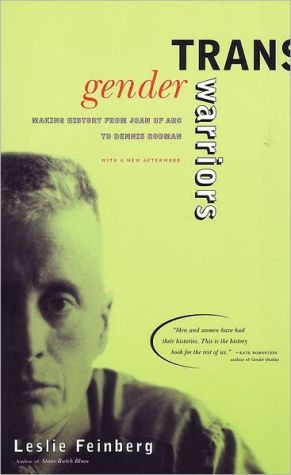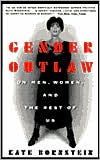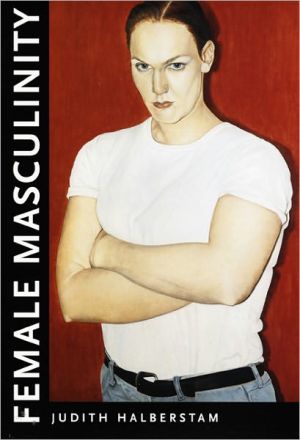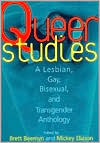Transgender Warriors: Making History from Joan of Arc to Dennis Rodman
With a New Afterword
Search in google:
With a New Afterword by the AuthorIn this fascinating, personal journey hrough history, Leslie Feinberg uncovers persuasive evidence that there have always been people who crossed the cultural boundaries of gender. Transgender Warriors is an eye-opening jaunt through the history of gender expression and a powerful testament to the rebellious spirit. Publishers Weekly Feinberg, a surgically and hormonally transgendered female-to-male and the author of the novel Stone Butch Blues, here effectively pummels several old saws about gender, such as that there were two or three centuries in ancient Greece that constituted the golden age of gayness ("How happy were the gay slaves?" she asks). She also shows the often frantic and neurotic ways Western society clings to rigid notions of gender, while at the same time she describes (though not fully enough) how these notions shift radically from age to age. But her historical perspective can be sketchy. Feinberg, for example, expends little effort in looking into why a notorious band of male Welsh revolutionaries calling themselves Rebecca and Her Daughters dressed as women to destroy tollbooths in the mid-19th century. Though she draws many conclusions from this and other examples of cross-dressing rebellion through the ages, she fails to consider that the readiest disguise for a married man is his wife's clothing. The book does offer an enlightening album of singular people: a female transvestite who is sexually attracted to gay men; a couple consisting of a female cross-dresser and a male-cross-dresser. But Feinberg ultimately leaves too many gaps, both in history and in reasoning, to make her theories about gender expression and gender oppression solid. Author tour. (May) FYI: Filming of Stone Butch Blues, which won both the ALA Award for Gay and Lesbian Literature and the Lambda Literary Award in 1993, is to begin this spring.
PrefaceAcknowledgments1The Journey Begins32My Path to Consciousness113The Give Away214They Called Her "Hommasse"315Our Sacred Past396Why Bigotry Began497But They Had Slaves!558Natural Becomes "Unnatural"619"Holy War" against Trans People6710Leading the Charge7511Not Just Passing8312From Germany to Stonewall9113To Be or Not to Be10114Sisterhood: Make It Real!10915Making History121Portrait Gallery131Appendix A. International Gender Bill of Rights165Appendix B. Transgender Organizations171Appendix C. Transgender Publications177Notes181Selected Bibliography195Photo Credits199Index205
\ Publishers Weekly - Publisher's Weekly\ Feinberg, a surgically and hormonally transgendered female-to-male and the author of the novel Stone Butch Blues, here effectively pummels several old saws about gender, such as that there were two or three centuries in ancient Greece that constituted the golden age of gayness ("How happy were the gay slaves?" she asks). She also shows the often frantic and neurotic ways Western society clings to rigid notions of gender, while at the same time she describes (though not fully enough) how these notions shift radically from age to age. But her historical perspective can be sketchy. Feinberg, for example, expends little effort in looking into why a notorious band of male Welsh revolutionaries calling themselves Rebecca and Her Daughters dressed as women to destroy tollbooths in the mid-19th century. Though she draws many conclusions from this and other examples of cross-dressing rebellion through the ages, she fails to consider that the readiest disguise for a married man is his wife's clothing. The book does offer an enlightening album of singular people: a female transvestite who is sexually attracted to gay men; a couple consisting of a female cross-dresser and a male-cross-dresser. But Feinberg ultimately leaves too many gaps, both in history and in reasoning, to make her theories about gender expression and gender oppression solid. Author tour. (May) FYI: Filming of Stone Butch Blues, which won both the ALA Award for Gay and Lesbian Literature and the Lambda Literary Award in 1993, is to begin this spring.\ \ \ \ \ Library JournalActivist Feinberg (Stone Butch Blues, Firebrand, 1993) here presents a sweeping history that many others have glossed over or denied: she traces transgender lives, identities, and expression from communal societies to the present day. Furthermore, she provides theoretical insight while always remaining accessible to the general reader. Feinberg argues that the current devaluation and oppression of trans peoples is inextricably linked to the emergence of hierarchical class-based societal forms and to shifts from matrilineal to patriarchal social organization. Her book really comes alive, however, through her infusion of personal narrative into the historical materialthe book ultimately is Feinberg's personal journey to find some representative place in a history that usually has denied or denigrated trans existence. Illustrated throughout, her book is finally a "portrait gallery" of photographs accompanied by statements from and biographies of people representing parts of the transgender spectrum. Appendixes include lists of organizations and publications. A valuable resource for researchers and an important personal and historical account of an underexamined social group, this is recommended for both public and academic libraries.Karl Bryant, Univ. of California, Santa Barbara\ \ \ BooknewsTransgender rights activist Feinberg presents evidence that there have been people throughout history who defy cultural boundaries of sex and gender, and urges us to recognize them as warriors and visionaries. The coverage actually extends back to the mythology of several cultures. Highly illustrated in black and white. Annotation c. Book News, Inc., Portland, OR (booknews.com)\ \ \ \ \ Kirkus ReviewsA much-needed project, unfortunately weighed down by repetition and cliché.\ Feinberg (Stone Butch Blues, 1993) has undertaken a history of transgender, a term used, Feinberg explains, "to include everyone who challenges the boundaries of sex and gender" or, as one activist puts it, to describe those individuals who live "full time in the gender opposite to their anatomy." It is a readable pop history, full of intriguing tidbits about past gender outlaws: For example, Joan of Arc was burned at the stake not for her resistance to the English but for the crime of cross-dressing. References to the author's personal experiences as a transgendered lesbian, as well as profiles of contemporary transgender activists, ground the book in present-day struggles. Unfortunately, excessive polemics mire Feinberg in repetition and ideological catch-phrases; instead of letting transgender's textured and often painful history speak for itself, she is continually hitting the reader over the head with preachings about the (admittedly very real) injustices Western society has visited upon those who do not fit neatly into the gender categories society assigns them. The sketches of contemporary transgendered people, among them writers, bodybuilders, historians, and artists, are written in their own words, and Feinberg allows many of them to spout rhetoric rather than describe the particularities of their own experience. She condescends to the reader by pointing out the obvious; mentioning transgenders who fought in the Confederacy, for example, she observes that not all gender deviants are politically progressive. Furthermore, Feinberg has no sense of humor about gender and does not seem to appreciate the potential for play in its subversion—she seems to see only oppression in the transgendered experience. Even her nod to wildly inventive drag supermodel RuPaul is earnest and flat.\ This joylessness is understandable given her own experience of violence and isolation, first as a masculine woman, and now as a transgendered lesbian, but it leaves out an important aspect of her subject.\ \ \








